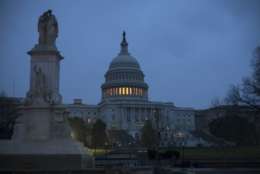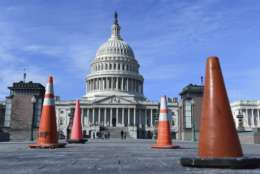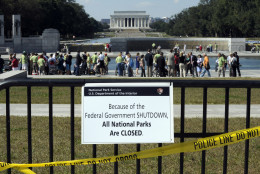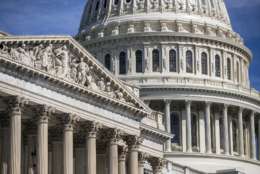Pay
-
If the surprise pay raise approved by the Senate makes it through the White House, what would it put in your wallet? We're looking at what’s happening and not happening with pay, shutdowns and appropriations on Capitol Hill.
August 08, 2018 -
Instead of "essential" and nonessential," the labels “emergency” and “nonemergency”are being used more to describe which feds have to work in the event of a government shutdown, whether from bad storms or blustering in the White House
August 07, 2018 -
Today the House is in recess until after Labor Day. Proposed changes in FERS, which would require you to pay 6 percent more for the benefit while cost of living adjustments would be eliminated for retirees, seem less urgent.
August 06, 2018 -
With a possible governmentwide shutdown just 58 days away, survivors of previous time-outs are remembering how they coped, if they were ordered not to work, or to go to work without the guarantee of getting paid.
August 03, 2018 -
In today's Federal Newscast, new analysis shows significant regulatory activity has fallen 74 percent since the new team took office.
August 02, 2018 -
Yesterday Mike Causey asked people to revisit the ghosts of shutdowns past and remember how they handled the financial and emotional strain. Shutdowns can be traumatic financially, but some feds said they turned them into a vacation.
August 02, 2018 -
The Senate included a 1.9 percent federal pay raise in a series of four appropriations bills, which it passed Wednesday. The Senate proposal differs from both the House version and the White House's recommendation.
August 01, 2018 -
Thanks to the FERS, CSRS and Social Security retirement programs, some feds will have guaranteed lifetime payments worth $1 million to $2 million. Are you one of them? If not, what can you do to reach your retirement goals? Find out when attorney Thomas J. O'Rourke joins host Mike Causey on this week's Your Turn. August 1, 2018
August 01, 2018 -
Thanks to the Federal Employees Retirement System, the Civil Service Retirement System and Social Security retirement programs many people in the federal government will have guaranteed lifetime payments worth $1 to $2 million.
August 01, 2018 -
Is there a federal pay raise in your future? And what's the status of legislation to reform the Federal Employees Retirement System? Find out when Federal News Radio reporter Nicole Ogrysko joins host Mike Causey on this week's Your Turn. July 25, 2018
July 25, 2018 -
There's talk that some kind of raise, either 1.9 percent by some counts or 3 percent as proposed by congressional friends of feds, could be worked out via the appropriation process after the midterm election. If so, it would be exactly the same raise nonpostal feds got last January.
July 24, 2018 -
Federal workers got a 1.4 percent raise in January that was proposed and backed by the president. But the outlook for 2019 was and still is different.
July 24, 2018 -
Do you remember what your work-wise, midsummer nightmares were this time last year? Even if you were on vacation this time last year, chances are you were thankful that the very real shutdown threatened for April didn’t materialize.
July 17, 2018 -
Financial planner Arthur Stein says that “declines are part of the market cycle.” In fact, he counted a historical average of 5 percent declines about three times a year.
July 15, 2018 -
With three months left to go in the cost-of-living adjustment countdown clock, federal/military/Social Security retirees are looking at a January inflation-catch up of 2.7 percent.
July 13, 2018















